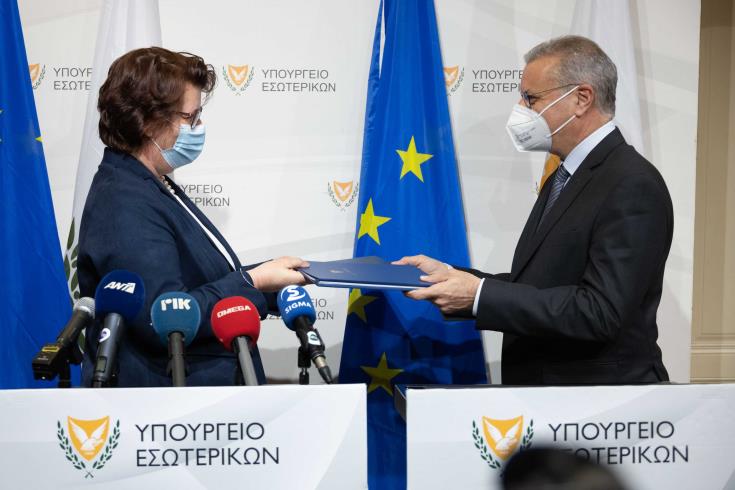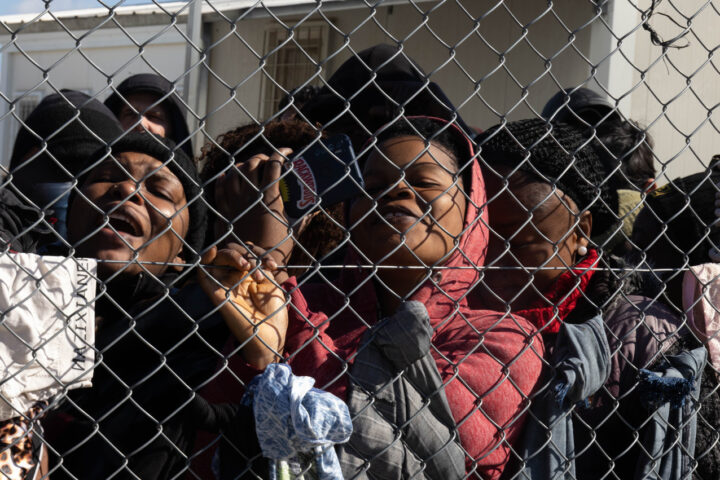For the first time, Cyprus and the EU have signed an agreement on the return of migrants by streamlining procedures for asylum rejection as arrivals increase.
The agreement was signed on Tuesday in Nicosia by Interior Minister Nicos Nouris and Beate Gminder, who heads the European Commission’s Migration Management, Task Force.
Gminder said Brussels acknowledges that Cyprus is under enormous pressure on asylum seekers, and the EU will support Nicosia in dealing with this challenge.
Nouris said Cyprus looked forward to more effective support for managing the situation and pointed out that Turkey is responsible for a flow of illegal immigrants through the Green Line.
Cyprus saw 1,335 new asylum applications in January — more the double the number from the same month two years ago.
Nouris said despite 13,235 new asylum applications being filed last year, Cypriot authorities managed to examine 16,000, of which nearly 13,000 were rejected.
He said 85% of those who applied for asylum had entered Cyprus from the breakaway north and crossed a United Nations-controlled buffer zone to file their claim.
Nouris said most migrant arrivals originate from sub-Saharan African countries, arrive in the breakaway north from Turkey’s Istanbul airport or its southern ports, then cross the divide to get to the EU side of the island.
“There’s a need to manage the green line, and that stems from the fact Turkey, by instrumentalising immigration, is sending all these people into the Republic of Cyprus.”
The agreement standardised return procedures with organisations such as Frontex and EASO.
He added that the request for financial assistance for the new reception centre in Limnes and upgrading the existing one in Pournara were also discussed.
“We have been focusing in the past month on cooperation returns; we are very happy that we are today approving the procedure for joint return operations between the EU and Cyprus,” said Gminder.
She said there was a need to increase overcrowded reception capacities in Cyprus and the EU and supports this endeavour.
We will continue to work together on averting people from departing because often people are misled by the promises made to them that they are not clear what this journey entails with all the risks and difficulties.”










